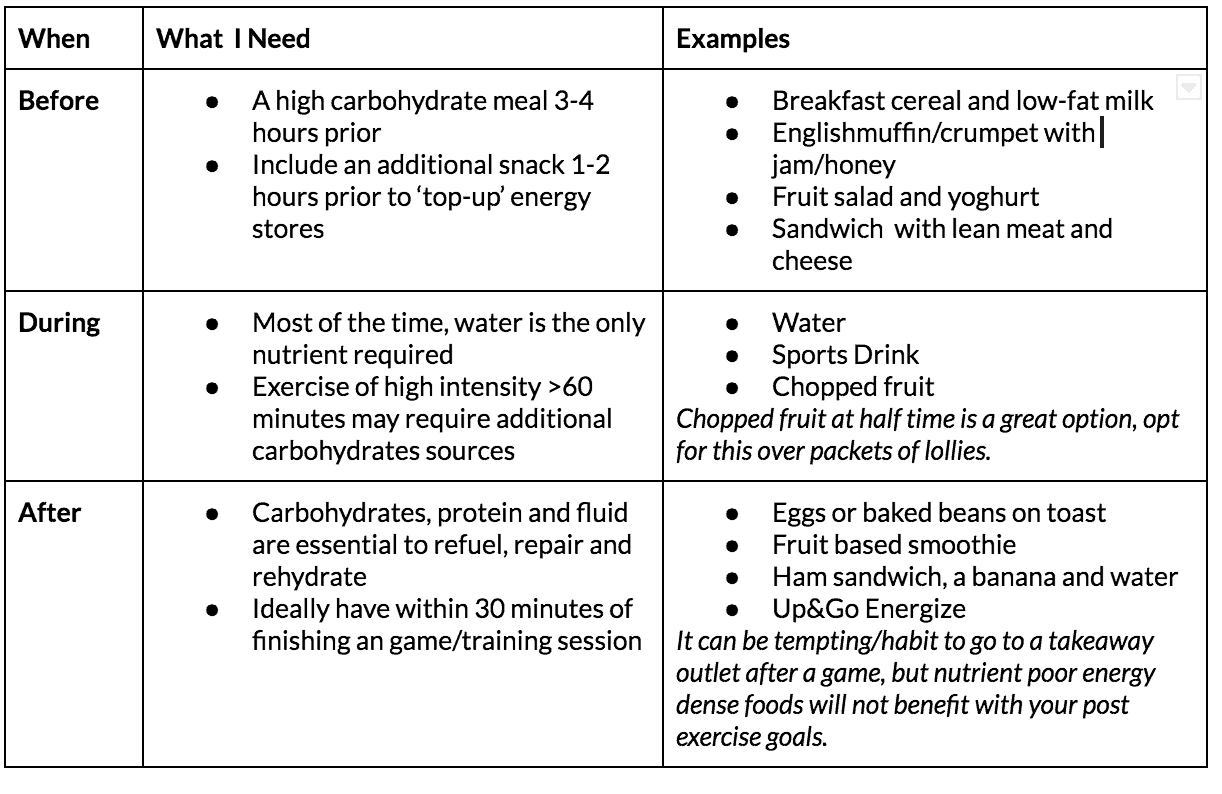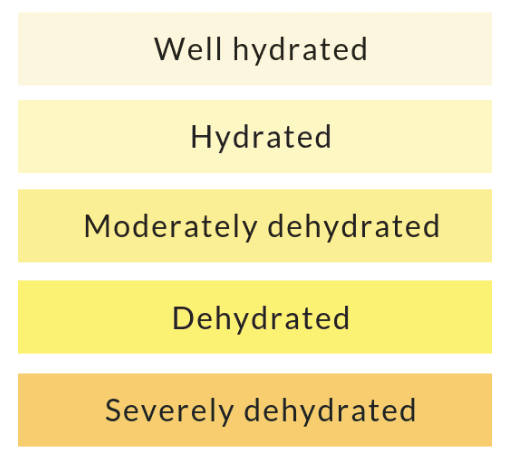icon
With the Australian A-League season coming to an end, it means for the majority of us the football (soccer) season is only beginning. Nutrition is not only important to how we play throughout football games and training sessions, but also to reduce our chance of illness or injury throughout the season for consistent high level performances.
At all levels of football, the body’s anaerobic and aerobic systems are challenged as you are required to walk, jog, run, sprint, jump, and change directions all which are more challenging with a ball at your feet. If we do not fuel appropriately for games and training sessions we can substantially reduce muscle glycogen stores (energy), which can lead to fatigue, decreasing running speed, reaction time and decision making skills.
Each player’s exact nutritional requirements will differ depending on player position, age, gender and training load. This is where a Sports Dietitian can becomes very helpful! Choosing the best type of fuel for your body around games and training sessions is essential for fit and healthy football players of all levels while making sure you get the most out of your season.
When it comes to sports nutrition, the most essential nutrients for exercise are carbohydrates for energy, protein for muscle growth/repair, and water for hydration. These nutrients provide the body with vital fuel required perform during a game especially when you play for the majority of the 90 minutes. The following table is a guide on what to eat before, during and after training and games.
General Nutrient Timing Around Football Training/Games

For some, eating before a game or training session is not easy due to nerves, stomach upset or being unsure of what to have. However, due to the high demand on the body during football games and training it is ideal to find something suitable to your needs. This could be as simple as a glass of non-acidic fruit juice (to reduce stomach upset) such as apple or pear, 1-2 pieces of white bread with spread, or a banana. While these may not all be ‘every day’ foods they are digested quickly by the body, providing you with energy without making you feel unwell.
Adequate hydration another vital component of sporting performance. By the time you feel thirsty you are already dehydrated so it is important to have strategies in place to make sure you are hydrated. The best way to indicate hydration status is to look at the colour of your urine. If you are hydrated it should be a pale, straw-like colour (see the image below as a guide).
If you find it hard to drink enough water on a daily basis, try some of the following tips:
Sip on water from the moment you wake up in the morningTake a water bottle to you when you travel in a car/bus/train as this will encourage regular sipping
Have water with your meals
Have a water bottle on your desk at work or school

Football is one of the most popular sports across all age groups and genders in Australia. While it is a fun, social, and provides us with exercise, it is important to consider nutritional factors that can affect our health and performance at all levels. It can take some time to find what works best for you, but it is worth it! Sport dietitian Ali’s main tips around games and training is to be organised by taking your own food and drink so you have access to fuelling foods and follow the nutrient timing guide to make sure you get the most out of your football season.
Working with a Sports Dietitian is the best way to discover what nutrition strategies during training and games work best for you and your lifestyle. To get started call Coast Sport on 4356 2588 or book online via the button below today.




 Helping the Central Coast Feel Well, Move Well and Perform Well!
Helping the Central Coast Feel Well, Move Well and Perform Well!